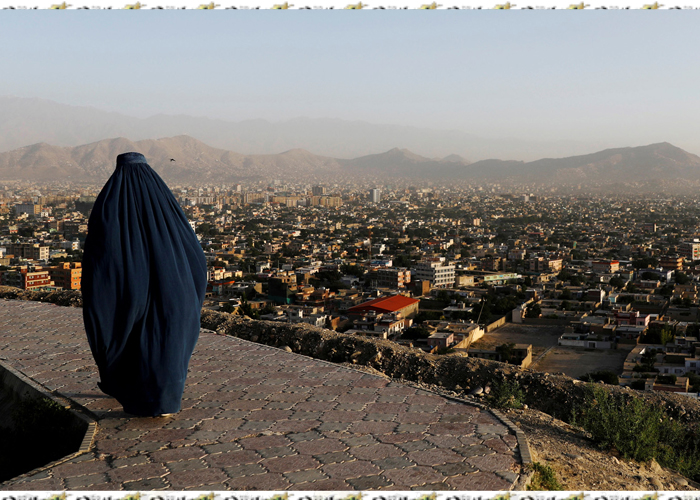When we look at the ancient history of Afghanistan, it was one of pioneer countries in the world in terms of social and economic development. Nearly 1200 year ago, Afghanistan (in that time known as Khurasan) was not only the center of political and economic development with domination on Silk Road but also considered as cradle of science, rationality and educational advancement. Afghanistan was the center civilization, culture and progress while the west was engulfed in medievalism. Being at the pinnacle of superstitious culture, the west was engaged in buying and selling paradise with executing their scholars when they invented something new or expressed different ideas, but Afghanistan was at the pinnacle of honor and magnificence having great scholars and poets such as Rodaki, Daqiqi, Bulkhi and so on. At that time, Bulkh city was not only the capital of current Afghanistan but also considered as Metropolis of central Asia, India, Iran and beyond playing the role of economic corridor between east and west. After the downturn of Bulkh, Ghazni and Herat became the center of science and civilization. Ghazni and then Herat were not only the political center of current Afghanistan but also as cultural and economic Metropolis of central Asia, India and Iran. With using experience of Bulkh, Ghaznawian was changed to a powerful empire in the eastern world. Shahnama is the cultural product of this era reflecting the epopee and epic of that era while it had nearly 400 poets and scholars. After Ghazni, Herat was famous at its technologies, architecture, art and so forth, but after downturn of Herat’s civilization, Afghanistan could not succeed to revive the historical magnificence of Bulkh, Ghazna and Heart. However, Afghanistan could find an opportunity to have a restful breath during Ahmad-shah-Baba when the northern, eastern and western neighbors were busy in their internal issues.
Anyway, given the past glory and magnificence of Afghanistan, the biggest question is why the center of science and development has changed to the center of ignorance and backwardness. What has transformed the Metropolis of politics, culture, economy and civilization to the center of terror and violence? This article is going to discuss about the historical factors of backwardness hoping to provide useful lessons for today’s darkness.
As a first factor, the domination of Sufism culture was the first factor of backwardness in Afghanistan. Sufism is a strict interpretation of Islam similar to Christianity in medieval age. Based on Sufism interpretation of Islam which was already dispraised by Prophet of Islam, the people should keep worshiping while avoid from worldly luxurious life, avoid from social and political participation and overall despise the materialistic world. The Sufism interpretation of Islam encouraged people to be isolated while the social and political development requires active participation of people in social and economic arena. When we look at late Ghaznawian and late Temorian of Herat, they stood against all symbols of rationality and freedom so far as no philosophical or scientific books were found at that particular era other than Sufis books. In late Ghaznawian and Temorian era, the cultural of Sufism not only paved the way for sectarian conflicts promoting culture of inflexibilities but also isolated Afghanistan with providing opportunity to new metropolis which was emerging in region such as Iran, India and Central Asia. Unfortunately, still some elements of Sufism and extremist are active in country calling everyone infidel except themselves.
As a next factor of backwardness of Afghanistan was western renascence and industrial revolution. Although the western renascence provided enlightenments to other countries, it provided darkness for Afghanistan. After the invention of the compass and advanced ships, the economic Silk Road was completely shut down. Afghanistan which was the center of trade and business suddenly isolated. The trade and goods exchanges suddenly declined to zero. Therefore, Afghanistan was fully changed to a landlocked country being disconnected from world and world economy while the mountainous geography of Afghanistan was not sufficient for agricultural productivities as only less than 5% of Afghanistan was cultivable. As a result, Afghanistan became dependent to economic assistance of other countries. This dependency was not confined to the government officials but also ethnic elders. Because of economic requirement they were compelled to accept the legitimate or illegitimate demand of foreign countries. Even today, the dependencies of the government and Taliban to their supporters are clear example for this issue while according to political scholars; the economic growth is the most important precondition for political development. So, if we want to reach stable democracy, we need to rescue from chronic poverty changing the landlocked country to land-link country. In this regard, the economic projects which has initiated by the president Ghani can be considered as new historic steps to break the historical isolation began nearly six century ago.
In regard to the economic connectivity of Afghanistan, it must be emphasized that economy is not only the foundation of society as Karl Marx believed but also the most powerful barrier against modernization, peace and prosperity. The regional and international allies should also note that a poor and needy Afghanistan will not be in the interest of world and region. The poor, needy and ignorant people can easily be used against one and other carrying out dangerous attacks anywhere in the world. In last two decades, if the government of Afghanistan and international community had provided employment opportunities inside the country, no Afghans would have risked their lives in Syria and also inside the country since 2001. Therefore, without economic capacity and economic strategy talking about peace, stability and creating political identities seems senseless.
Home » Opinion » The Historical Barrier of Development in Afghanistan
The Historical Barrier of Development in Afghanistan
| Mohammad Zahir Akbari

